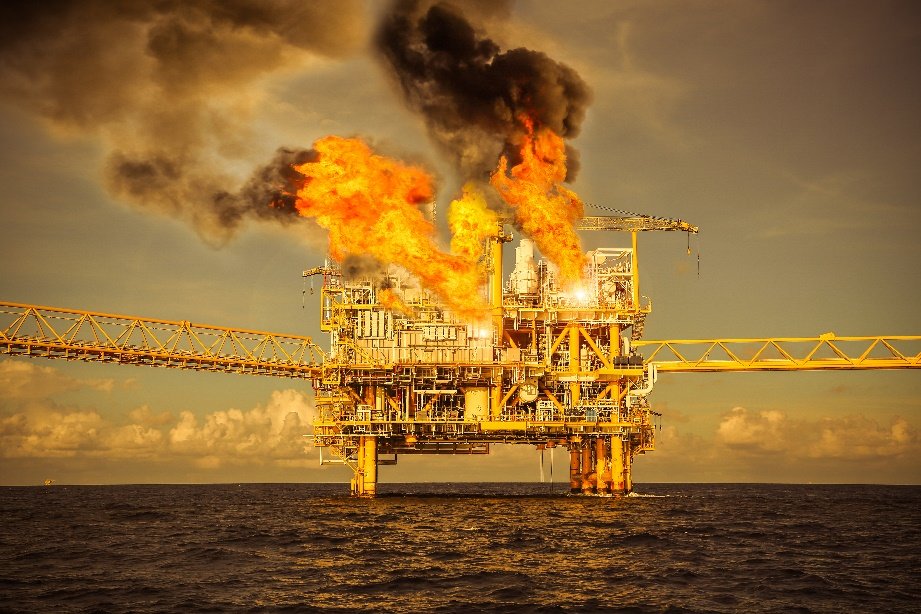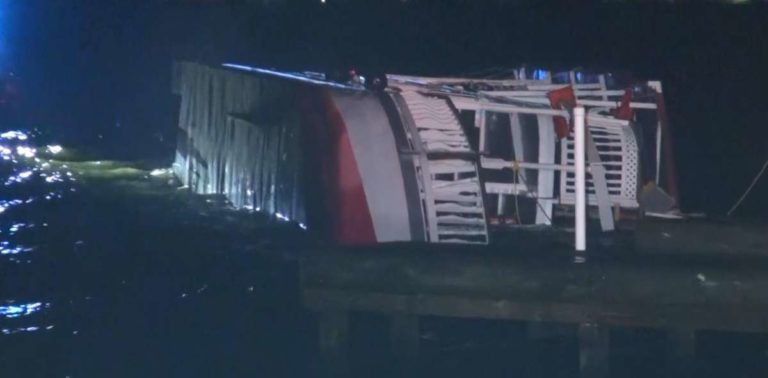Although it’s been seven years since the Deepwater Horizon oil spill, the environmental and human devastation may linger for generations. On April 20, 2010, the oil rig in the Gulf of Mexico faltered, exploded and burned into the sea off the coast of Louisiana, dumping nearly 5 million barrels of crude oil. It topped a heartbreaking history of missteps that made tragedies such as the Exxon Valdez oil tanker pale in comparison. For families who lost loved ones and those whose health was damaged, it’s important to enlist the help of an experienced Jones Act attorney.
Deepwater Disaster
The offshore drilling rig was owned by Transocean and leased by BP oil. A natural gas explosion compromised the core and shot up into the platform causing a massive burn. Significant oil leakage didn’t actually occur for two days. Fully engulfed in fire, the rig finally collapsed on April 22 and that ruptured a riser used to discharge underground mud, opening the crude floodgates.
An estimated 60,000 barrels per day contaminated the Gulf of Mexico until it was finally capped in mid-July. It was like watching a horrific car wreck, 24 hours a day for nearly three months. Unfortunately, capping the well was only the first step in halting a calamity that continues to do harm to this very day.
Environmental Damage
While ships and cleanup technologies were brought to bear as quickly as possible, the uncaptured oil created a visible slick stretching over a thousand square miles. And, more than 1,000 miles of coastline suffered tremendous pollution. As oil and tar balls hit the shore, beaches, marshes and brackish waterways had to be cleaned manually as birds, fish, shellfish and plant life withered and died. The harm caused by crude that settled on the ocean floor may never be completely quantified. But what may have done an equal amount of injury were the methods used to “clean up” the spill.
Efforts to corral and siphon the massive oil slick were only modestly effective in handling the spread. Much of it was set ablaze and huge plumes of black smoke rose into the air, damaging the lungs of emergency workers and seamen. Compounding the noxious burns was the fact that dispersants were dropped on uncontained slicks. At the time, the theory was that these substances would help break down the oil so that naturally occurring bacteria could metabolize it. Sadly, that strategy added to a wealth of human suffering over the long haul.
Impact on Seamen
It’s impossible to place a monetary value on the damage to your health or the loss of a loved one. Families such as the 11 brave workers killed during the Deepwater Horizon explosion and other offshore accidents are eligible to seek damages under the Jones Act. The 17 who suffered a debilitating offshore injury can seek compensation through what longshoremen lawyers more specifically call “Jones Act maintenance and cure.” That basically means forcing the insurance company to pay lost wages and medical bills to people like the injured crew of Deepwater Horizon. Over the years, BP oil and others have been — to some degree — held accountable and have been required to put more than $7.8 billion into settlement resources for people harmed by the calamity. Tragically, the oil burns and chemicals also inflicted harm on the men and women who worked tirelessly to protect the environment and people living along the coastline.
Civilian Impact
The decision to use Corexit as a dispersant may have created an unforeseen harm to the coastal population. According to the Center for Disease Control, Corexit can cause chemically-induced pneumonitis, skin and nervous system problems that include depression, vomiting, brain impairment, as well as liver and kidney damage. People living along the Gulf coast have experienced high rates of these and other health problems potentially linked to the 1.8 million gallons of the dangerous chemical. The Corexit cleanup tactic was basically a carpet bombing of the waters that families and their children swim in and the air they breathe every day. The move to cure the oil slicks can only be likened to the effect spraying Agent Orange on American soldiers had during the Vietnam War.
For many people, the Deepwater Horizon incident is not an environmental disaster that was cleaned up seven years ago. The harm done to the health and wellbeing of seamen and the civilian population may linger for lifetimes in some cases. If you or a loved one has suffered due to the Deepwater Horizon incident or the pollutants used in the cleanup, call us for a consultation.







